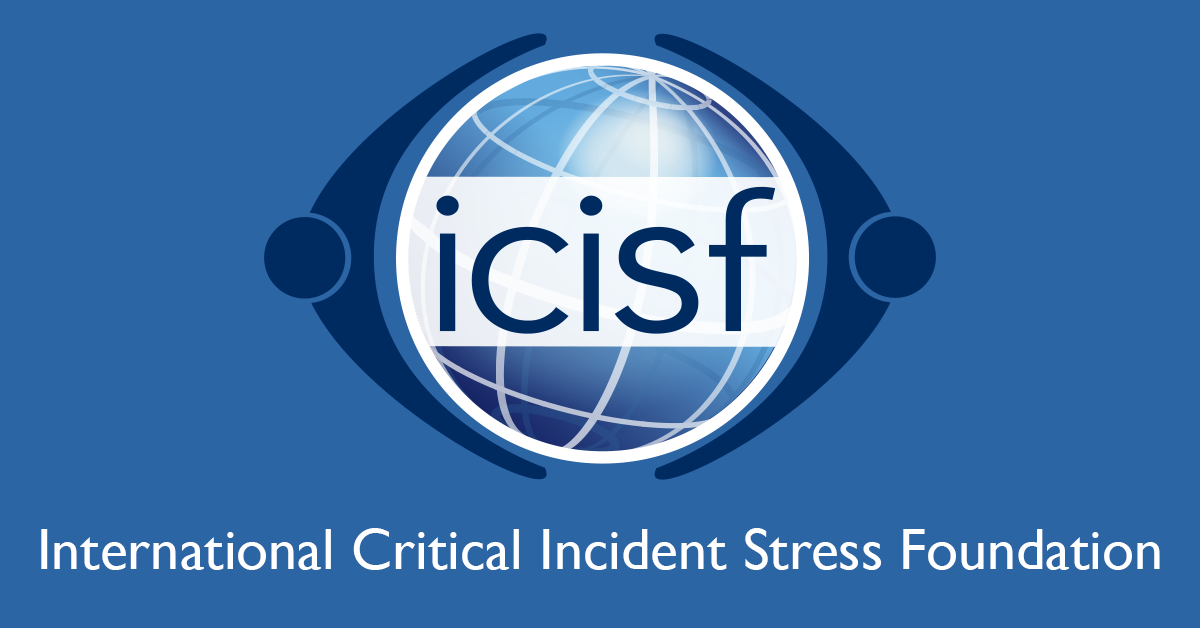|
We serve a lot of couples at Elbow Tree who tell us how much they enjoy pairing their couples counseling appointments with a delicious meal right next door at The Back 40 Urban Cafe. Recently, I mentioned this to the owners of The Back 40 and their response was to create a special 20% off coupon for every Elbow Tree couple who pairs their couples counseling appointments with a meal at their establishment. Stay tuned for more details on the coupons. SUGGESTED MEAL STRATEGIES: Go Before Counseling - Some couples have shared that they enjoy grabbing a bite to eat together next door before an appointment as an opportunity to check in with each other prior to their session. These couples report how helpful it has been to have a relaxed time over a delicious meal and to walk next door having connected for a few minutes before the session. Arriving into therapy together after having had an hour beforehand make a more effective transition creates some helpful margin between the session and other stressful parts of their life. Sharing a meal, even if the time together is a quieter time at the table, can be a gateway of sharing some space together. We encourage couples not to interpret the silence as much as to honor it. Small talk is not wasted and can be reparative if there has been tension. Go After Counseling - Some couples build in time after each of their counseling sessions to walk next door and debrief the previous hour. We encourage couples to adopt a spirit of curiosity in therapy together that we hope will linger into their time at The Back 40. Other couples may elect to not carry the heavy counseling conversation into their meal together and simply focus on the opportunity to be together in a more lighthearted way. A few couples have even reported that they love to order their meals from The Back 40 to go, and then they go eat them together somewhere a little more private, like a park, their favorite beach spot or even along the bay front downtown. Regardless, counseling appointments don't have to be limited to the 50 minutes you are in session. You can be more intentional and anticipate what you may need on the front or back end. When couples carve out room before and after a session, it allows for them to more effectively prepare and recover from a session. You can also attempt both and then choose the one that is your preference. Some helpful pre-counseling mealtime questions: 1. How can I be supportive of you in our session together today? 2. What's the state of your heart as you are arriving to our time together (fearful, discouraged, despairing, delighted, pleased, hopeful)? 3. Is there anything that you wish we had discussed in our previous session that we want to be sure to touch on in our session today? Some helpful post-counseling mealtime questions: 1. How can I be supportive this next week of the things you shared today in our counseling session? 2. Is there anything that we discussed in counseling that you'd like to continue debriefing together? 3. Is there anything you wished we'd discussed in counseling that we didn't and do you want to talk about that now or in our next session? This is not an exhausting list of questions, and you may have some questions of your own that work best for you and your partner. Regardless, we are huge proponents of building in additional opportunities for helping couples take full advantage of the counseling process. Build a meal into the process can be a terrific source of help as you do this important work together and build habits of healthy connection.
3 Comments
by Hayne Steen It is with great enthusiasm that we are announcing that Elbow Tree has opened up a new counseling office in Jacksonville Beach, Florida. For the last four years, we have been deepening our local footprint in Saint Augustine. We've logged over 8,000 face-to-face client hours serving individuals, couples and families here! It has been a dream to open an office in the Jacksonville Beaches area that would allow us to serve an even broader community of individuals, couples, and families along the north Florida coast. We are actively scheduling clients for Tuesdays and Thursdays; Tuesdays: Hayne Steen from 9:00 AM - 3:00 PM Thursdays: Taylor Johnston from 8:00 AM - 12:00 PM NEW LOCATION ADDRESS:
Elbow Tree Counseling 408 4th Street North Jacksonville Beach, FL 32250 If you have any questions about our practice or how to get started, you may email us at [email protected] or call our office number at 904.559.1944. By Hayne Steen, LMHC
There are no shallow people in the world. Every soul is a deep well. Accessing the soul takes some guidance and eventually some skill to get down into the depths of things. Such a dark and scary place, like the soul, can leave many people far too afraid to explore its depths. Deep calls to deep in the roar of your waterfalls; all your waves and breakers have swept over me. -Psalm 42:7 The Psalmist invites us to taste the terror of meeting God in the longing of his soul. It is not a safe place. There is risk when you enter the waters of your soul. Your soul is like a well. Your skills are like a rope. Not everything is visible from the surface. We all need a rope to help us access the depths of our own well. I love what Parker Palmer has to say about our deeper places… “The deeper our faith, the more doubt we must endure; the deeper our hope, the more prone we are to despair; the deeper our love, the more pain its loss will bring: these are a few of the paradoxes we must hold as human beings. If we refuse to hold them in the hopes of living without doubt, despair, and pain, we also find ourselves living without faith, hope, and love.” If we can not access the depths of our soul, we need to grow the strength and length of our rope. This will involve developing the necessary relationships and skills for accessing and attending to our soul. Growing the Strength Our Rope The strength of our rope depends on the strength of the relational resources we are able to access and cultivate in the context of healthy community. The strength of our rope is directly tied to the strength of healthy emotional connections. 1. We can learn to be vulnerable and take healthy emotional risks with trusted friends, counselors, and/or spiritual directors. One friend shared some wisdom that I have appreciated as it pertains to how we approach expressing vulnerability. “Be generally open with everyone and painfully specific with a few.” As we discover this new found freedom in our own unique healing process, we will begin to discover that not everyone is interested or able to hold the vulnerable things you carry. We don’t need a lot of people to share in painfully specific ways but we do need a few…and a couple of those may need to be trained counselors with specific skills for walking with you in the most vulnerable places of your story. 2. We can allow another person to “hold space” for us by sitting with us in ways that are meaningful and helpful to our soul’s flourishing. “You walk along with them without judgment, sharing their journey to an unknown destination. Yet you’re completely willing to end up wherever they need to go. You give your heart, let go of control, and offer unconditional support.” —Lynn Hauka We all need someone who can hold space for us. A friend of mine and I call these kinds of men “the safe guy network.” Basically its a way of referring broken men to other men who we know can sit with them in whatever they might be going through. It’s the kind of person who does not have a savior complex but is able to boldly sit with us when the shit is hitting the fan. It’s a way of allowing another person to treat us the way were intended to be treated…with dignity, without judgement, with empathy and with compassion. 3. We can risk sitting in a circle with other fellow strugglers and experience the dignity of our not being alone. Time and time again, I hear men share about the power of being together in ways that are so uncommon out in their everyday walking around lives. They say things like;
The power of therapeutic process groups lies in the unique opportunity to receive multiple perspectives, support, encouragement and feedback from other individuals in a safe and confidential environment. These interpersonal interactions can provide group members an opportunity to deepen their level of self- awareness and to learn how they relate to others. 4. We can sit with someone who is hurting and offer them the quiet assurance of our gentle presence. Offering people our gentle presence cultivates a safe place for taking off masks we may be wearing. When we do not run from pain but we can sit steadfastly in it and earnestly listen, we help restore people to their humanity. In turn, we are also given our humanity back. 5. We can maintain a healthy boundary with toxic individuals or groups who hinder our soul’s flourishing. Knowing who you need and who you do not need are equally important as you pivot toward strengthening your skill set for caring for your soul. Toxic people do not honor boundaries, both spoken and unspoken. My brother in law gave me some great advice a couple years ago. “You have to teach people how to treat you.” Those words mirrored what my own therapist shared with me several years ago as I was launching into private practice. “Hayne, no one will honor your time more than you." God’s number one priority is that we love him with all of heart, mind, SOUL and strength. If our soul is a well, then we will want to protect its contents. “Above all else guard the [soul] for it is a wellspring of life.” If there are toxic people who poison your soul, it may be time to explore some healthy boundaries with them. Growing the Length of Our Rope The length of the rope has more to do with the skills we can develop for navigating the depths of our soul. 1. We can learn to name and honor our emotions. The first work man was given in the Genesis narrative was to name all of the wild beasts. What an overwhelming task to name things we had never experienced before! Naming the animals brought about a sense of order into the chaos into which we were first formed. Even today, we continue on in our necessary task of naming all of the wild beasts…in our case, naming and honoring our emotions. Imagine adopting the posture of a generous landlord who oversees your emotional life. There are 8 tenants who live within us called core emotions; anger, fear, sadness, loneliness, hurt, guilt, shame and gladness. When they knock on our door, and they will, we can learn the skill of treating them with hospitality. Were we to run them off and refuse to listen, they will most likely mistreat the dwelling, leaving it trashed. Eventually we will have to deal with them because of the mess they make due to neglect. If we will offer these 8 tenants genuine hospitality, then when they knock we can invite them in for a cup of coffee. Generally out feelings are coming as messengers. When we honor their commitment to us, we can discern better how to live well. When we honor our emotions and offer them room to be heard, they will develop a sense of ownership and treat the dwelling with greater sense of care. 2. We can give ourselves permission to rest. Productivity and outcomes often can drive us into break neck unsustainable rhythms that inevitably lead us into significant break down. Sabbath rest is a critical ingredient for rehabilitating our tendency to remain stuck as a human doing. Taking a holy pause invites us back into the fullness of being human. Taking our hands off the plow opens us up to the opportunity for play, adventure, savoring, lingering and listening. Extended times of retreat offer us the ability to lower our rope into places of our soul that we’ve been neglecting. 3. We can learn how to work through disappointments and disillusionments. (hat tip to Stephen W. Smith) Expectations are a prescription for resentment. Many people carry resentment around and it leaks all over everything like melted chocolate in a hot mini van. The root is some form of hurt which takes courage to admit and even more to address. Unless we work through our disappointment and disillusionments, we will inevitably smear them all over the other contents of our life. 4. We can seek out avenues for processing trauma, grief and loss. One of the most common features among people who seek out counseling is unattended heartache. It comes in all shapes and sizes. Everyday we log hundreds of losses. Over a lifetime, we will experience thousands of micro-losses. All of those can add up to something in the form of trauma. Sometimes we experience the most hellish forms of trauma. Our bodies hold onto the information gathered in these traumatic events. Without a way to be reprocessed, they will haunt us for a lifetime anytime we are in a situation that sounds like, smells like, looks like, feels like any nuanced part of the traumatic event. When seeking out a counselor to walk with you in trauma, find someone who is qualified and trained specifically to enter into trauma in the most gentle and ethical manner. 5. We can learn to breathe and regulate our heart rate. “Then the LORD God formed a man from the dust of the ground and breathed into his nostrils the breath of life, and the man became a living being.” —Genesis 2:7 On a retreat recently, one of our facilitators was teaching a few of us how to breathe. She shared that, “Most people don’t actually breathe, they pant.” For the next couple hours she worked with a friend of mine and re-taught him how to breathe. Our breathing is essential to the rest of our body. If we are panting then our heart rates are up. If our heart rates are up even just 10% above our normal resting heart rate, then we will not be able to thoughtfully enter into the work of soul care. Our brain literally can not make that leap. Breathing opens us up to slowing down, paying attention, letting go of tension and opening ourselves up to a more soulful experience of ourselves, others and God…and we become a living being…AGAIN. When a child is born into an environment marked by an enduring food insecurity, he/she learns to live with the hunger pains as if they are a normal somatic body sensation. Like a hunger pain, loneliness is a similar feeling that lets us know that we are hungry, that we have a need to connect with ourselves, another person, God, or any combination of the above. As our world embraces social distancing as a new norm, we are able to curb (or avoid) those feelings of loneliness. When we feel the ache of loneliness we may be tempted to not take the time to listen for what kind of loneliness is showing up in us. It would be very easy to feel lonely and to simply interpret that loneliness as only a need for others when it very well could be either a longing for one's self or even a desire to be with God and God alone. In our modern world, whenever we lose access to our technology for more than an hour, we often experience a similar somatic body response akin to a hunger as if we were missing something we "needed." A friend of mine shared when his kids lose access to their screens they often respond as if they are literally running out of oxygen. At some point their brains recognize they did not actually asphyxiate. Not only do my friend's children need time to detox from their screens but he reports, like many families who institute digital sabbaths or sabbaticals, eventually his children express a resistance to digital re-engagement. I share this now because we have been effectively forced into a unfamiliar form of social disengagement. We've being called into a more solitary form of life for a season and for many folks it's incredibly destabilizing. One week of this feels sort of great, like a glorified stay-cation, and it does not destroy our financial bottom line nor feel particularly lonely. We may even say things like, "this is just the kind of break I've been needing anyways." Two weeks of this cut off from others starts to pinch a little more and our deeper more hidden loneliness begins to register as a form of social starvation. We are now entering EIGHT WEEKS of this new normal. Zoom meetings now dominate the social landscape and have been an amazing resource for helping connect groups of people together. Even with the many tech inspired tools for connection, people are going stir crazy for actual human contact. In the month of April, our counseling practice offered nearly 200 online counseling sessions collectively. In March the number of online counseling sessions was probably more like 20 collectively. We, too, had to adapt to the moment in order to insure continuity of care for our clients who desired to continue meeting. As we reopen our physical office, clients are reporting feeling grateful for having two options for now. As social restrictions loosen and you move back into familiar places and spaces, I want to take a moment to advocate for you to also continue leaning into your own personal resistance to be alone with yourself. Silence is a powerful force for our good when we opt into it and willingly listen for what comes up in that quiet (but often very noisy) place. Your loneliness is not a curse. It's necessary. If loneliness is uncomfortable, that could be an indicator of some internal resistance that needs to be processed and explored. Do not be afraid of doing some deeper listening. Theologian John Calvin kicked off his Biblical commentaries with a fantastic invocation..."there is no deep knowing of God without a deep knowing of self. And there is no deep knowing of self without a deep knowing of God." May you resist the temptation to surrender your loneliness too quickly. Dig deeper. Dig longer. Dig wider. As an old miner might say, "There's gold in them there hills!" Don't surrender your loneliness so quickly. “Don't surrender your loneliness so quickly. Let it cut you more deep. Let it ferment and season you as few humans and even divine ingredients can. Something missing in my heart tonight has made my eyes so soft, my voice so tender, my need for God absolutely clear.” -Hafiz Please don't hesitate to TURN HERE. We'd love to help!
Curated by Aubrey Cannata Here is a small compilation of helpful tools to help you navigate the next few weeks. Scroll thru to find something you can try. Please feel free to share additional ideas with us that have worked for you! THE POWER OF GRATITUDE Simply noticing the good things in your life is a great way to protect yourself against the negative. Acknowledging the positive can construct a buffer of “good” around you that makes it harder for the “bad” to get in.
Example of what ISN'T effective: I have some good friends. Example of what IS effective: I am so thankful to have someone like Nicole in my life. She is always a ray of sunshine, has a megawatt smile that you can’t help but feel when in her presence, she is generous and thoughtful. She is genuinely appreciative any time I try to do something nice back to her. She loves life and always tries to stay positive. Read more about the science behind gratitude and the brain. MANAGE ANXIETY AND ISOLATION DURING QUARANTINE By Dr. Aarti Gupta, PsyD Many of us, even those who have not been infected by the virus, will choose to quarantine in our homes for the upcoming weeks. Here are a few pointers that could help you survive spiraling negative thoughts about this uncertain time. 1.) Re-frame “I am stuck inside” to “I can finally focus on my home and myself”. As dismal as the world may feel right now, think of the mandated work-from-home policy as an opportunity to refocus your attention from the external to the internal. Doing one productive thing per day can lead to a more positive attitude. Set your sights on long-avoided tasks, reorganize, or create something you’ve always wanted to. Approaching this time with a mindset of feeling trapped or stuck will only stress you out more. This is your chance to slow down and focus on yourself. 2.) Stay close to your normal routine. Try and maintain some semblance of structure from the pre-quarantine days. As you work from home, it could be tempting to fall into a more lethargic lifestyle, which could lead to negative thinking. Wake up and go to bed around the same time, eat meals, shower, adapt your exercise regimen, and get out of your PJ’s. Do laundry on Sundays as usual. Not only will sticking to your normal routine keep you active and less likely to spiral, it will be easier to readjust to the outside world when it’s time to get back to work. 3.) Avoid obsessing over endless Coronavirus coverage. Freeing up your day from work or social obligations gives you plenty of time to obsess, and if you have a tendency to consult Google for every itch and sneeze, you may be over-researching the pandemic as well. Choosing only certain credible websites (who.int or cdc.gov is a good start) for a limited amount of time each day (perhaps two chunks of 30 minutes each) will be in your best interest during this time. 4.) A chaotic home can lead to a chaotic mind. With all the uncertainly happening outside your home, keep the inside organized, predictable and clean. Setting up mental zones for daily activities can be helpful to organize your day. For example, try not to eat in bed or work on the sofa- just as before, eat at the kitchen table and work at your desk. Loosening these boundaries just muddles your routine and can make the day feel very long. Additionally, a cluttered home can cause you to become uneasy and claustrophobic of your environment- so keep it tidy. 5.) Start a new quarantine ritual. With this newfound time, why not do something special during these quarantined days? For example, perhaps you can start a daily journal to read something fiction for one hour per day. Or take a walk every day at 4pm, connect with your sister over FaceTime every morning, or start a watercolor painting which you can add to everyday. Having something special during this time will help you look forward to each new day. IDEAS TO WARD OFF DEPRESSION WHILE IN ISOLATION One of the number one remedies clinicians advise for people with depression is to get out and do something, and even better, do something with someone! As if that isn’t hard enough for someone in the thick of it, it’s practically impossible right now. But take heart! There are options. It takes some creativity. If you’re not the creative type, find someone who is! Here are some of my personal ideas, as well as a few links to ideas from others. Get out a calendar, and make a plan to do something enjoyable every single day, or at least every other day. Do something nice for someone! Ask someone if you can pick something up for them at the grocery store. Send a real greeting card in the real mail! Write someone a letter that you haven’t talked to in awhile. Make someone in your house breakfast in bed. Make a candlelight dinner with fancy paper plates Buy a big puzzle and lay it out over the dining table. Invite a friend over to help. Spend 20m a day on it. (Ellen DeGeneres chronicled her adventures on Instagram doing a giant puzzle, then gave up on it and switched over to Legos.) Bake! Pick a couple days per week and bake a new recipe. I know you have a Pinterest board or a notebook full of recipes you’ve never tried. Make something you wouldn’t normally – a healthy version of your favorite treat, or make some good old fashioned rock candy! If you’re a good cook, challenge yourself to using just what’s in your pantry. Meet your neighbors. Leave a note on a neighbor’s door (or knock if you’re brave – ha ha) and invite them over for tea or coffee (make good use of that porch or patio!) Or, invite them to allow you to bring over a store-bought treat and coffee. Visit for 30 min and then go about your day. Even if you just say hello thru the open door and ask if you can bring over a treat that you made (see above!), you can put a smile on their face and yours! Get outside! Go for a walk, but with purpose. Take pictures of (or just pay attention to) as many different types of ___ while out (types of plants, types of mailboxes, types of flags, door wreaths, dogs). Post the info on social media. Ask if others can name the types of plants/dogs, etc. Get on your bike and explore a new route or a new neighborhood. Maybe downtown or somewhere near the water, and then take your time noticing the new environment. Create a mini-golf course in your yard or nearby area. You are naturally pretty distant from others, and you get outside air. Be silly. Golf with your left hand instead of right. Place friendly bets on each hole. Be active. Try a new hiking trail. I love the GTM across from Vilano Beach. (Check to see if the trail is open.) If there’s nothing open, go to the neighborhood next to yours, or walk to a nearby coffee shop/restaurant for your to go order. Create new experiences. Try out a new coffee shop in town (twice per week, or every day, whatever!) Get the same type item. Log your results and share! I recently discovered City Perks downtown and thought it devine (great baked goods, too). Same for Dos Coffee. https://www.visitstaugustine.com/article/coffee-hot-spots-st-augustine Connect with others: Websites like Zoom and apps like VSee let us meet in groups over the internet. Do “happy hour” or set a dinner date with friends. Sit down and meet together as you normally would as if you were in person! You can even watch a movie together using FaceTime! Make it a regular date. Learn something new: Many websites are providing online fitness classes, art classes, etc. I joined Orange Theory recently, and so have been doing their daily workouts at home. You can check them out on Facebook for free. One sites like MasterClass.com, you can access over 80 different entertaining and useful classes. Another is OutSchool.com Other businesses offer a weekly meet up for free on facebook that can also be watched later. For example: https://www.facebook.com/makepaducah/?hc_location=ufi Two great websites with lots of ideas: Print them out and highlight the ones you want to try. Strive to do one every day. Be ADVENTUROUS! 1) Are you social distancing? 25 things you can do to keep yourself busy. https://www.hellomagazine.com/healthandbeauty/health-and-fitness/2020031686372/things-to-do-if-self-isolating-at-home/ 2) 60 things to do during self-isolation https://allthingskoze.com/blogs/kozechronicles/60-things-to-do-during-self-isolation EYE OF THE HURRICANE – A MEDITATION Meditation techniques, however primitive in terms of their origin, are strangely appropriate and tailor-made for our current life that is busy and stressful. There are different schools of meditation and various types of practices accessible to us today, including:
There are regular benefits of meditation, including awareness, mental peace, and focus, loving-kindness meditators enjoy added advantages of increased happiness, love, and affection. Although there are no right or wrong ways of practicing meditation, as long as we are committed to unconditional love and self-appreciation, here are some requisites of practicing every day:'
Access the meditation “eye of the hurricane” here: Access on Youtube: https://www.youtube.com/watch?v=HPFayxlm_ms Download audiofile from dropbox: https://www.dropbox.com/s/avf62fyukpwpenu/Audio%20-%20Eye%20of%20the%20Hurricane %20Meditation.mp3?dl=1 GUIDED MEDITATIONS and MINDFULNESS The internet is flooded with guided meditations that will help you sleep, too. Here are additional options – but ask your friends too! From the Dartmouth Student Wellness Center: https://students.dartmouth.edu/wellness-center/wellness-mindfulness/relaxation-downloads/deep-breathing-guided-relaxation MIT Medical Sleep and Mindfulness Resources https://medical.mit.edu/community/sleep/resources IT’S KIND OF AN EMERGENCY The future is looking uncertain for everyone across the globe. Some days we will handle it better than others. Maybe you’ll handle it fine, but you know someone who isn’t. Please keep this info handy and share as needed. The National Suicide Prevention Lifeline is one resource that can be reached 24 hours a day. 1-800-273-8255. The HopeLine is available 24 hours a day Monday through Friday and 9 a.m. to 11 p.m. on Saturdays and Sundays. The line can be reached by phone or text: (919) 231-4525 or (877) 235-4525 IMAlive is a live online network that uses instant messaging to help those in crisis. It can be found at www.imalive.org. Residents can also reach out St. Johns Care Connect for local support and to get connected to local agencies who can help. They can be reached at 904-819-3070 or residents can fill out the online form at www.stjohnscareconnect.com. The United Way also provides local help with its 211 Community Helpline. It can be reached by calling 211 or 904-632-0600. Prayer warriors are at your service, anonymously if you’d like. Diocese of St. Augustine: https://www.dosafl.com/request-a-prayer/ The Joy FM radio station: Get Prayer Right Now Call or text 877-800-7729 Connect with someone who will pray with you. Any time, 24 hours a day, 7 days a week A collection of resources provided by Aubrey Cannata, Elbow Tree Christian Counseling [email protected] A Reflection by Hayne Steen Earlier this year my wife and I purchased a new home on Anastasia Island in St. Augustine, Florida. It's literally our dream home in our dream location. On the evening my wife and I drove to sign all of the closing documents for the home, I experienced a wave of breathtaking anxiety sweep over me and in me. The "What If" monster had successfully snuck into the room of my head and heart to invoke a frightening level of fear. I remember driving home from that closing event in complete silence. For the next week, I could not shake this feeling of dread and doom. Over the next couple weeks, a couple things happened that were really helpful. First, I shared my anxious experience with a couple trusted friends and family members. I can't imagine a prison more punishing than to live in the pain of anxiety alone. I am grateful for the continued reminder in Genesis that, "it is not good for man to be alone." Friends, I want to encourage you. In these moments when pandemics and power mongers seek to bully and intimidate, it is not good for you be alone either. Many around the world are being forced into various forms of quarantine. Our quarantines do not have to equate to soul crushing solitary confinements. One of the most helpful resources I have personally enjoyed over the last few months has been a book by Max Lucado called, "Anxious for Nothing - Finding Calm in a Chaotic World." I've nibbled and sipped on the words of this text for 3 months. Slowly, as Max points us to the beauty and wonder of God's goodness, I've sensed a growing sense of peace taking root within me. You may ask, "Is there something specific in the book that stands out to you as a helpful resource for crippling anxiety?" Yes. One of the connections Max makes with anxiety is its relationship to unresolved regret. In chapter 3, Max writes; "Maybe there is someone on the planet who has not known the quagmire of remorse, but I've never met that person. What sucked you under? Maybe your guilt is the result not of a moment in life but a season in life. You failed as a parent. You blew it in your career. You squandered your youth or your money. The result? Guilt. A harsh consequence of the guilt? Anxiety. Surprised? Lists of anxiety triggers typically include busy schedules, unrealistic demands, or heavy traffic. But we must go deeper. Behind the frantic expressions on the faces of humanity is unresolved regret." When anxiety shows up in my life it seems to be deeply connected to areas of attended heartache or more simply, unresolved grief. That's what one hour with a spiritual director recently uncovered for me as well. What about you? Are you coming into contact with your own unresolved regrets or unattended heartaches that show up in forms of low or high grade anxiety? "What kind of person does unresolved guilt create? An anxious one." I'd highly recommend picking up the book, "Anxious for Nothing" by Max Lucado and take full advantage of the FREE online video study series Max has made available to us online. I'd also recommend reaching out to speak with someone in this season that has the power to stir lots of anxiety triggers. As a counseling practice, we've intentionally reduced our fees nearly in half in order to promote the possibility for people to access counseling resources. REDUCED RATES UNTIL APRIL 30, 2020 Licensed therapists one-hour fee - $60/per session Pre-licensed therapists one-hour fee - $50/per session Graduate intern one-hour fee - $25/per session Please don't hesitate to TURN HERE. We'd love to help!
by Hayne Steen, LMHC Telehealth can be a powerful resource for your therapeutic good. “Tele” is a Greek word meaning distance and “meden” is a Latin word meaning “to heal”. Time magazine called telemedicine, “healing by wire.” At Elbow Tree, we want to leverage the distance between us for the ongoing work of your healing. That’s why each of our Elbow Tree therapists are taking a few minutes now to help their clients become oriented to engaging in psychotherapy in this online space. THE FOUR COMMITMENTS 1. Make Appointments & Keep Appointments.
As you schedule appointments with your Elbow Tree therapist, keep in mind that the time has been specifically set aside for you and you alone. Elbow Tree therapists are committed to preserving your requested time and taking steps to create a distraction free and confidential experience for you. Elbow Tree’s cancelation policy remains in effect. Should you experience a medical emergency or death in the family, please give your therapist as much notice as possible. Should you “no show” or make a last minute cancellation (inside the 24-hour window from your appointment date and time), you will be charged the full session fee. 2. Limit Background Noise. Before you log on to your phone or computer for your scheduled counseling session, please thoughtfully consider WHERE you will locate yourself. We find that minimizing distractions will lead to the continuity of your counseling session. Dogs barking, dishes clanging, doors opening, and children interrupting have the potential to derail positive momentum you may be making in a session. We’d like to suggest communicating in advance what you need from your family to help preserve the sacredness of the counseling space. 3. Keep it Confidential. In our physical offices in St. Augustine, we are able to ensure each therapy session is held completely confidential. Online, we are equally as committed to protecting your confidentiality. We’ll need your help to sustain this. We recommend securing a location to sit that provides the sound and sight security that will be required. Whether you are sitting in a bedroom, a home office or in the sound proof booth of your personal vehicle, be mindful of “sound bleed” which is sound that others can overhear. Earbuds or headphones can help guard against what is transmitted TO you. We also want to protect what is transmitted FROM you. In our offices you may recall that we have sound machines running outside every office that is in session. We won’t be able to provide you with one of those so space selection becomes even more crucial. Elbow Tree therapists will be checking in at the beginning of each session to ask for your precise location. This is (1) to ensure you are in a secure confidential environment and (2) to fulfill our ethical responsibility of ensuring the emotional and physical safety of every client should anyone ever report suicidal ideation or intent. 4. Check your Tech Whatever device you elect to use, please request a complimentary test run of your technology with your therapist prior to your first online session to ensure; • Apps have been downloaded correctly. • Cell phone coverage is strong enough. • WIFI or internet service is sufficient. We do not want waste valuable therapy time syncing up technology. We have found that performing a test run can of our respective technologies significantly helps advance the therapeutic process. There is often nothing more triggering for clients than showing up to therapy online and then spending valuable therapy time trouble shooting their technology. Hopefully, by doing a test run, we can work out as many of the bugs as possible prior to your appointment. Occasionally, we may still encounter technical difficulties on either end of the user experience. We’ll do our very best to place ourselves in a secure location with strong internet service on devices that can handle the task of meeting with you online. Thank you for trusting Elbow Tree in this season as we navigate this new moment in history when we seek alternative means for helping maintain the continuity of your counseling experience. We look forward to journeying with you in this season and we look forward to the opportunity of meeting with you face to face as soon as we are cleared medically and legally to do so. Do not hesitate to reach out to us at [email protected] should you have any questions. by Hayne Steen, LMHC One of my all time favorite movies is Dan in Real Life, starring Steve Carrel who plays the role of Dan, a columnist, widower and single dad. On the way to his family vacation home in Rhode Island, Dan falls in love with a mystery woman he meets in a book store nearby. Dan in Real Life is loaded with all sort of hilarious family dynamics and some amazing wisdom on romance and love. You'll be cheering for Dan the whole film and laughing along the way. Here's a little taste of the film...Happy Valentines Day! by Hayne Steen Let me begin this by asking a few questions;
Let’s face it. We’ve all been there. On both ends of hurt, we have each been the offender and the offended. Every day we endure hundreds of little and no so little losses that over time can accumulate like cholesterol. Words get exchanged. Feelings get felt. Silence gets deployed. Words get withheld. Messages get mixed up. Memories get messy. Our body holds that hurt. Grief is our body's logical mechanism for managing the loss. When we refuse or don’t know how to grieve, that hurt turns into resentment. Think about that word. Resentment. Re-sentimenting. Re-feeling. We are hard wired for hope. That’s why we “re-feel” things. Over and over, we attempt to digest our hurt. We are determined to feel it over and over and over again, with the expectation that it will crunch up the memory once and for all. Have you heard this saying before? "Unforgiveness (aka resentment or undealt with hurt) is a poison we drink hoping it will poison the other person or offending party." Hurt demands healing. Our bodies won’t leave us alone until we do. Just like a death, we hunger for healing and relief from our pain. When an injury has taken place in a context of relationship, the only way for us to heal is the same way we were injured. We heal the way we were hurt which is why we resist it so much. Someone has already broken our trust or confidence so the least logical next step is to trust someone else. It’s far more safe to remain in the hurt than to risk in relationship, with the one who hurt us or someone else. When we do not pivot toward healing, we remain stuck in resentment which guarantees that we will begin to over identify with our pain. In order to talk about healing resentment, we’ve got to talk about grief and forgiveness. Grief is a process that we go through in order for our brains, bodies, and souls to accept the reality of what or who has been lost. Like I said, we sustain hundreds of losses every day. People are notoriously injured when;
We all have the capacity to hurt and be hurt. The good news? We all have the capacity to heal. Grief is this incredible piece of technology that were made with in order to navigate life in a tragic place. Another beautiful piece of technology at our disposal is forgiveness. Both of these have the power to set us free, if we will engage them. One of the best ways to engage grief and forgiveness are in a context of trust. This is why counseling can often be such a powerful tool to utilize. It is a laboratory where we have permission to experiment with the toxicity of our hurts, feel what we need to feel, own what we need to own, lay down what needs laying down and move toward whomever we need to move toward. Grief allows us to forgive. We do not want to live with unattended heartache. It will poison us from the inside out. When we are stuck in hurt and heartache we will make attempts to invite others INTO our pain. Forgiveness, though, can allow us to no longer be bound by or stuck in that hurt or loss. It can open us up to more wisely and freely give of ourselves. We all need time to grieve in order to give ourselves away again. And with enough willingness, patience, work and time, we can feel the freedom of unburdening. May you find some space to sit still enough to notice and name your own unattended heartache. And may you find a waymaker, someone who can sit as a quiet presence with you and hold space for you and your resentment as you lean into your own unique healing process.
by Hayne Steen There are seasons when life that can be extremely intense. It does not matter whether you are an entrepreneur, a pastor, a first responder, a psychotherapist, a missionary, a pilot or an oncologist. Not every profession shares the same exact kind or threat level of trauma but each of those mentioned above brings with it the likelihood of experiencing some form of trauma, whether actual or vicarious. And even with a well designed and executed plan for self care, our bodies, minds, and souls can still experience significant break down from the prolonged stress. A Soul Care Intensive is simply a guided way of helping your body to slow down, to relinquish being so necessary for a period of time, helping your mind to be at rest, helping your heart enter into an open and spacious time of listening, and for your soul to be replenished. If there is anything intense about a Soul Care Intensive, it is the detoxing that occurs when we lay down the many forms of busyness that have become so intoxicating. Purging all those poisonous patterns can feel rather intense because a body in motion wants to stay in motion. We have all become addicted to many forms of busyness and accomplishment, pointing to impressive outcomes that do not and will not satisfy the soul. Busyness is not bad. Toxic busyness will corrode us from the inside out while everyone cheers us on from the sidelines to keep going. The gift of a Soul Care Intensive is the opportunity to unlearn that toxic pattern and re-learn what it can mean to slow down, to truly be fully present with ourself and with God. One wise counselor in my life described, “Christians have plenty of well formed Orthodoxy (knowledge ABOUT God) and scads of Orthoproxy (service FOR God) but we are starved of Othopathy (experience WITH God). This same wise sage went on to tell me, “If we had more experience with God, it might actually inform what we believe about God and what we agree to do for God.” In essence, we all need something like a Soul Care Intensive from time to time to help us attend to those easily malnourished dimensions of our lives. Who is the ideal candidate for a Soul Care Intensive? YOU. If you have read along this far, and if any of it resonates, you are likely the ideal candidate. So what does a Soul Care Intensive look like? A Soul Care Intensive most often kicks off on a Monday morning and wraps up on Friday afternoon. We meet for 3 hours every morning for five days and you are provided with some self guided spiritual exercises every afternoon with the evenings to yourself, by yourself. Prior to the intensive you will be sent several assessments to complete, along with some short reading, audio and video to digest. You will also want to explore some form of inexpensive lodging like an AirBNB which there are many of in our nation’s oldest city. Travel, lodging and food are not included in the Soul Care Intensive fee, so we can help you consider where you might like to stay in order to have the most restful and life giving experience while you are here. On the back end of a Soul Care Intensive, it is my practice to schedule at least one follow up session to check in with each retreatant one month following their intensive experience. Many often schedule monthly spiritual direction that we can facilitate using an online video conferencing platform.
|
ELBOW TREEArchives
July 2023
Categories
All
|

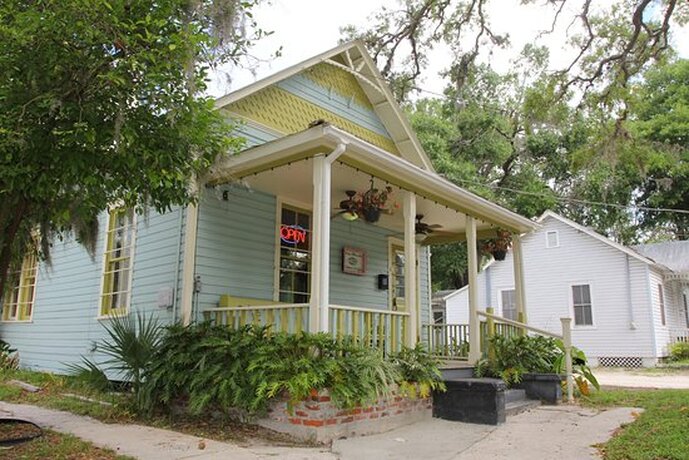
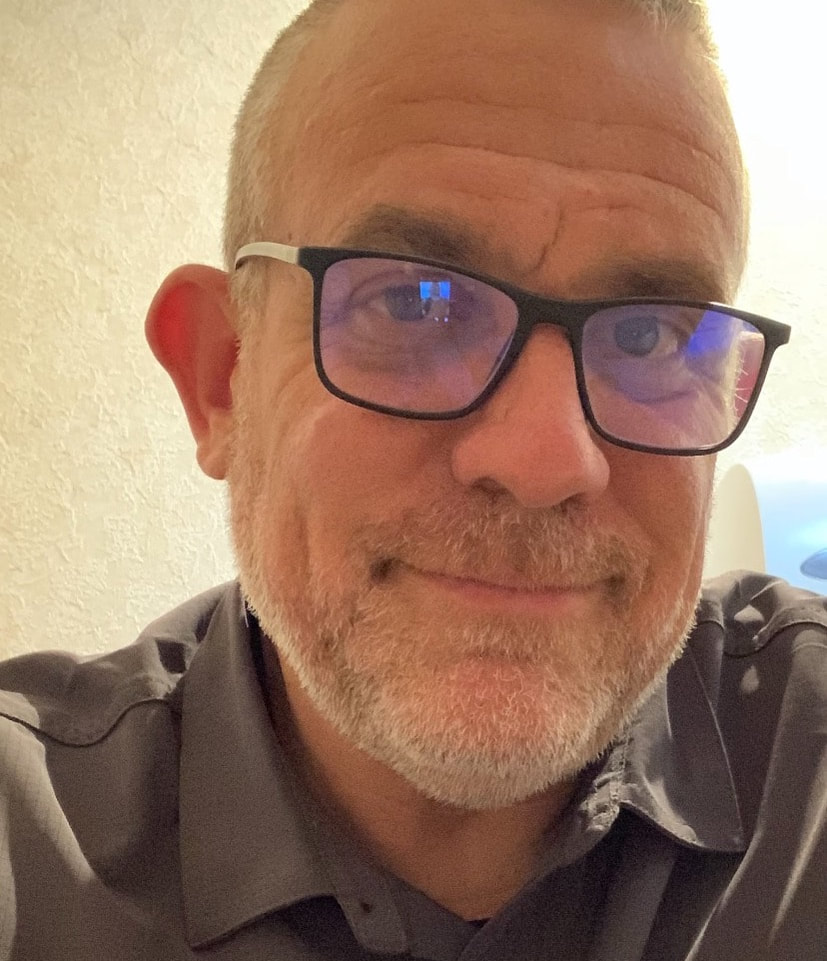
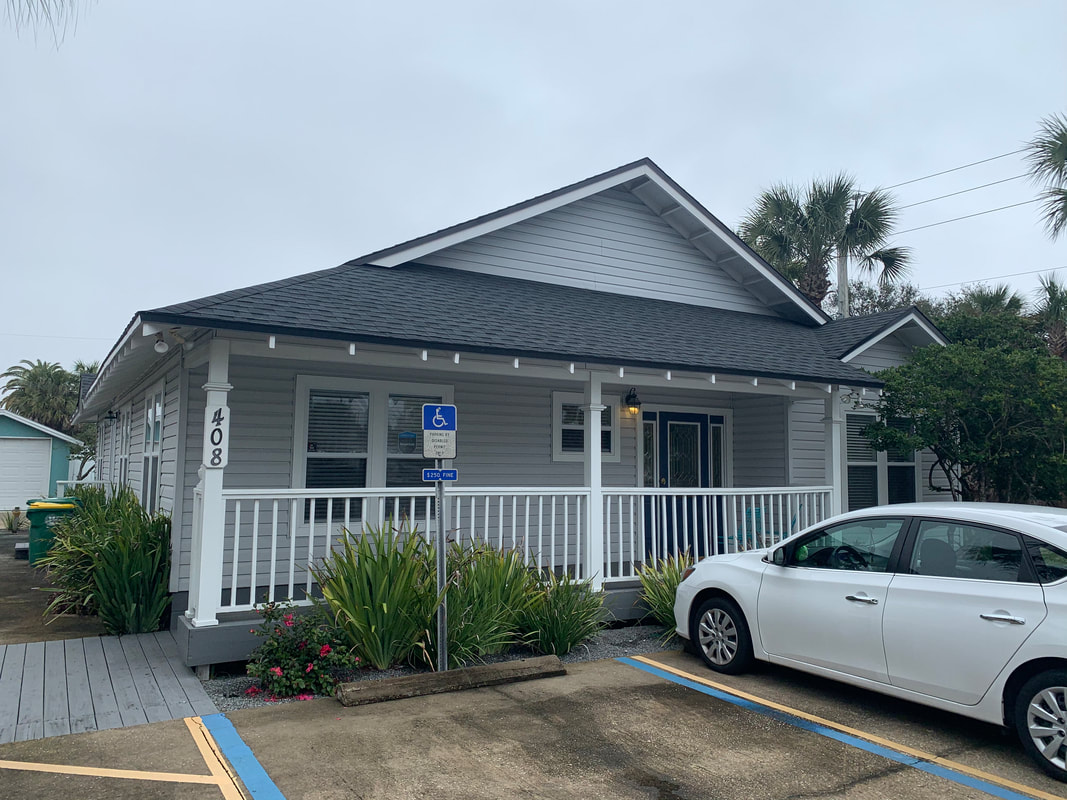
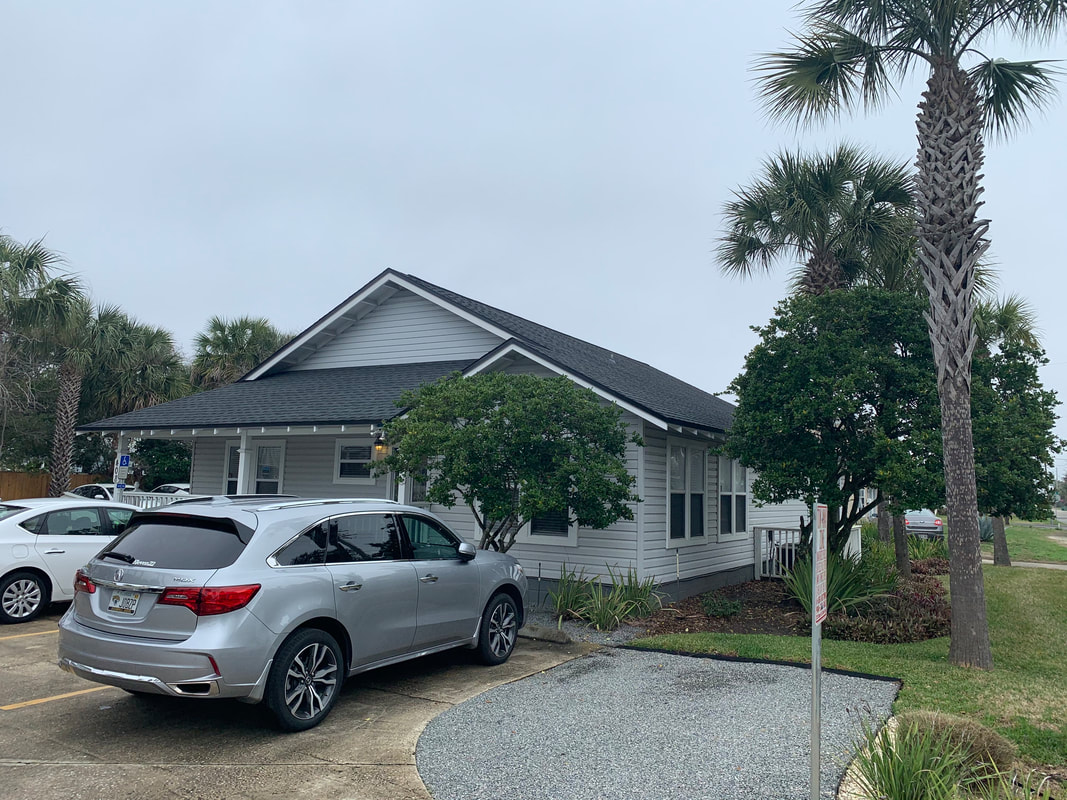





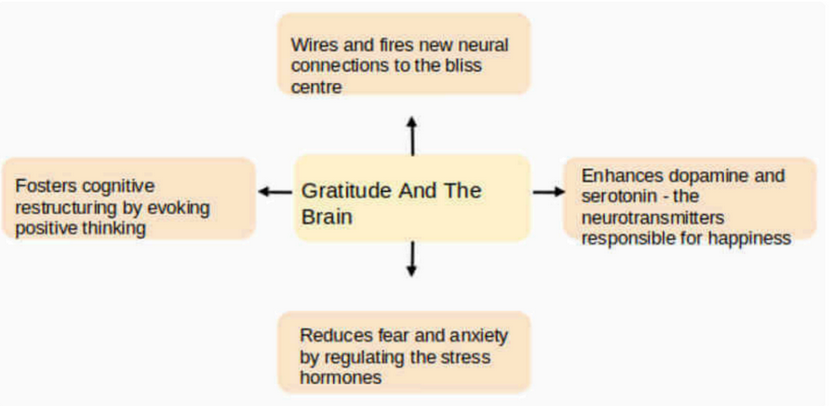



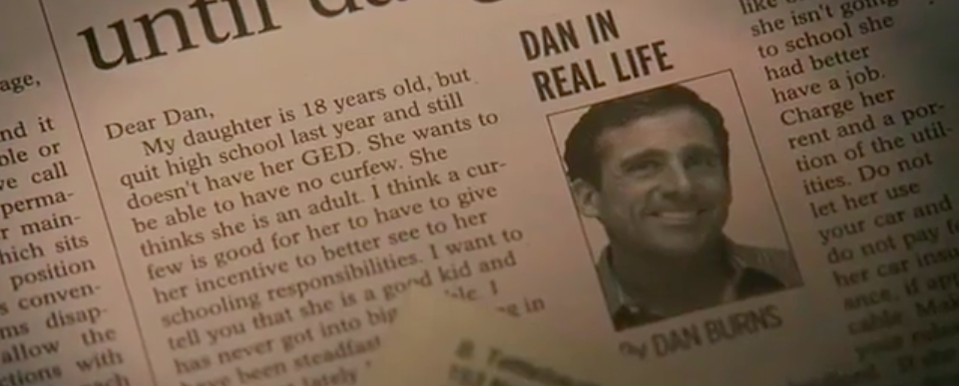

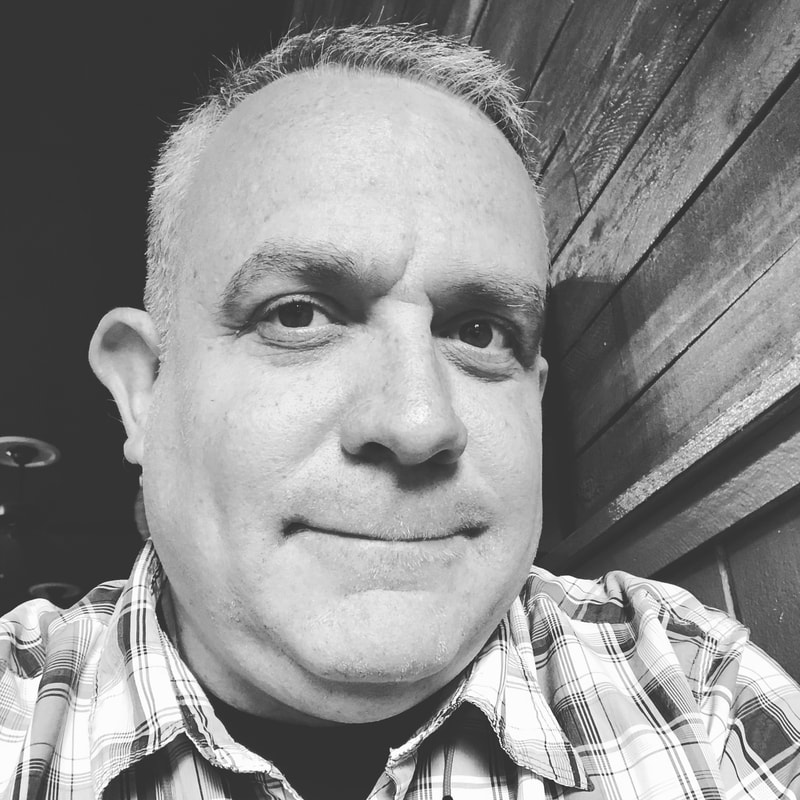
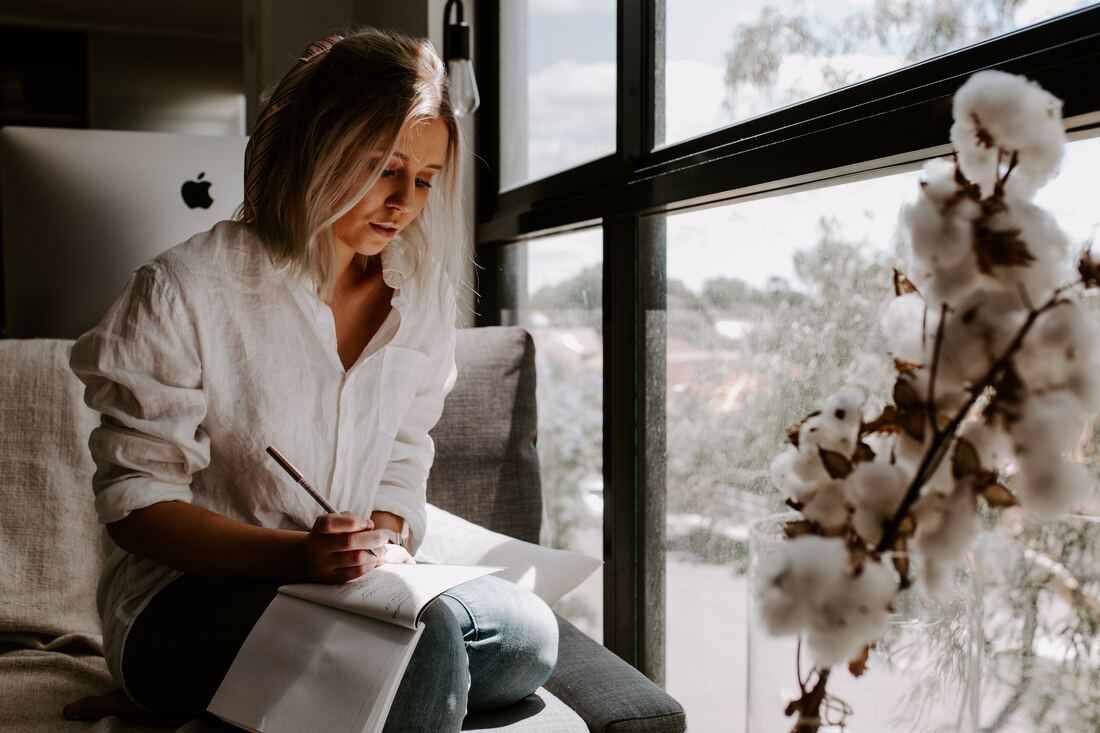
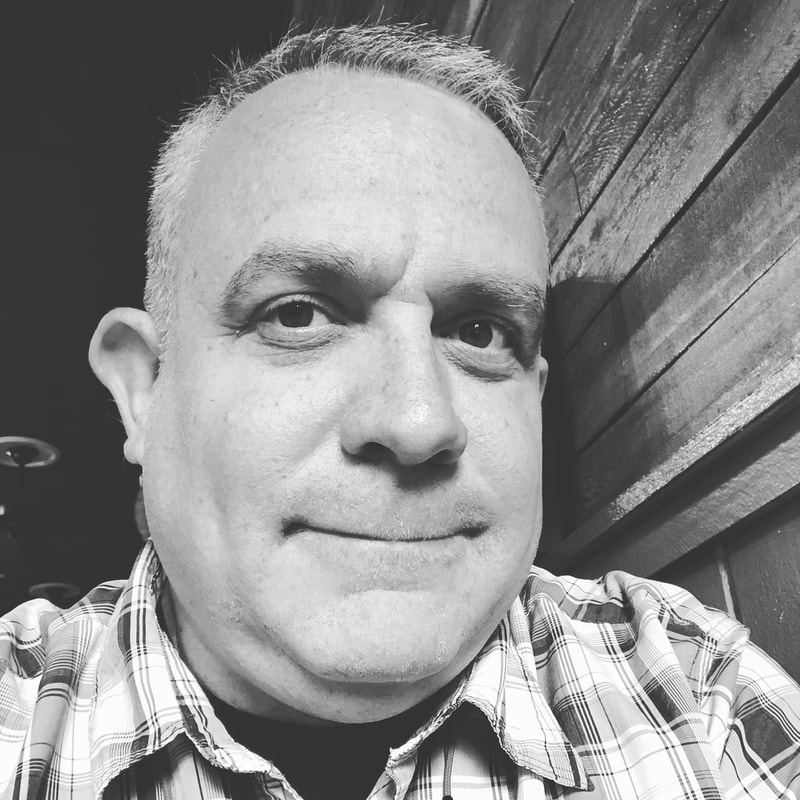
 RSS Feed
RSS Feed









